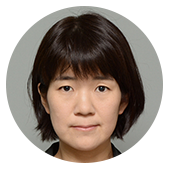Attali says new risks have emerged since the end of the Cold War, and describes the relationship between market economics and democracy as "unsustainable." Markets are global, democracies exist within borders, and democracy is not strong enough to balance the inequalities. "The market is focusing on creating more wealth for wealthy people, and democracy is not able to compensate," he says.
The second problem, he says, is that both markets and democracy are selfish and focus on the short term. They don't foster the long-term vision we need. That, he warns, is a path to totalitarianism, as people see that as a path to long-term security.
"We need to transform this world to have another set of values," he says, and calls for a "positive economy," with an eye on the planet and future generations. The key, he says, is to prevent short-term financing by governments and investment funds, and focus only on long-term consequences. "Everybody should be penalized when we are trying to make short term profits."
And as consumers, we too should be making choices with a long-term vision, he says.
"Do I consume something which is not destroying the planet? As a saver, I should always think of what my bank is doing with my money. As a worker, I should not work in a company which is not positive, sustainable."

The former advisor to French president Francois Mitterand has a dismal forecast for what will happen if that shift doesn't occur.
"Catastrophe. First, the US will withdraw from international responsibilities. China will not become the number one of the world. The world would be an anarchy of countries."
Attali says companies such as US tech giants Google, Amazon, Facebook and Apple, or their Chinese equivalents, would try to replace nations, but would fail. "The world would be chaos, socially, economically, politically, technologically and ecologically," he says.
But Attali is choosing to stay optimistic. His foundation measures nations' capacity to create positive economies.
"It's not enough to measure the GDP or GDP growth. My foundation, Positive Planet, measures an index of positivity, which means that it measures the capacity of each nation member of OECD to prepare the world for long term issues."
Positive Planet's evaluation system assesses dozens of indicators, such as education, press freedom, and income equality, and then issues annual rankings.
Attali says it's designed to help nations find problems with their economies and create measures to tackle them, and to drive them to be competitive about their ranking.
Thirty years after one wall came down, Attali wants to see more walls, such as poverty, gender discrimination, educational barriers and more, crumble. Divisions are deepening across the globe due partly to the recent resurgence of nationalism.
Attali says the world's problems cannot be solved at a national level, and if we refuse solidarity in dealing with the issues, no-one will win.

